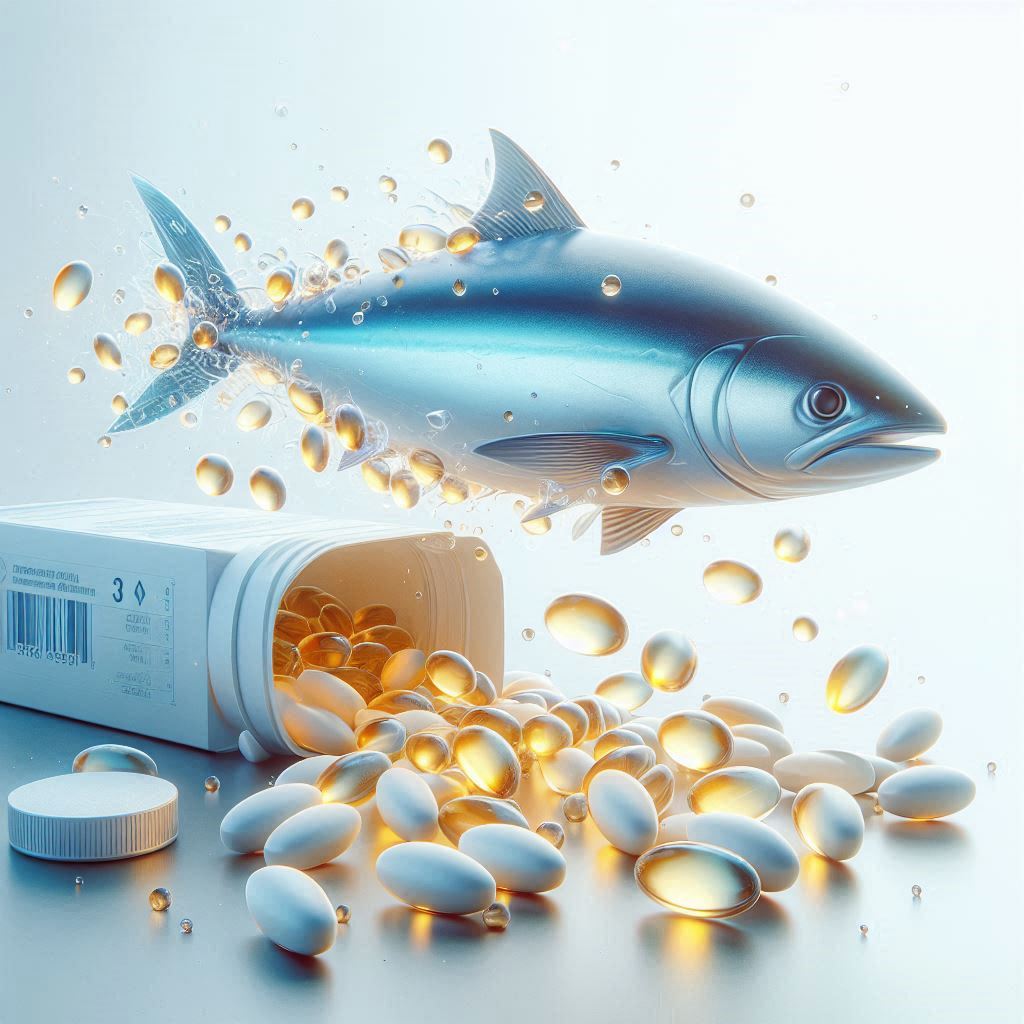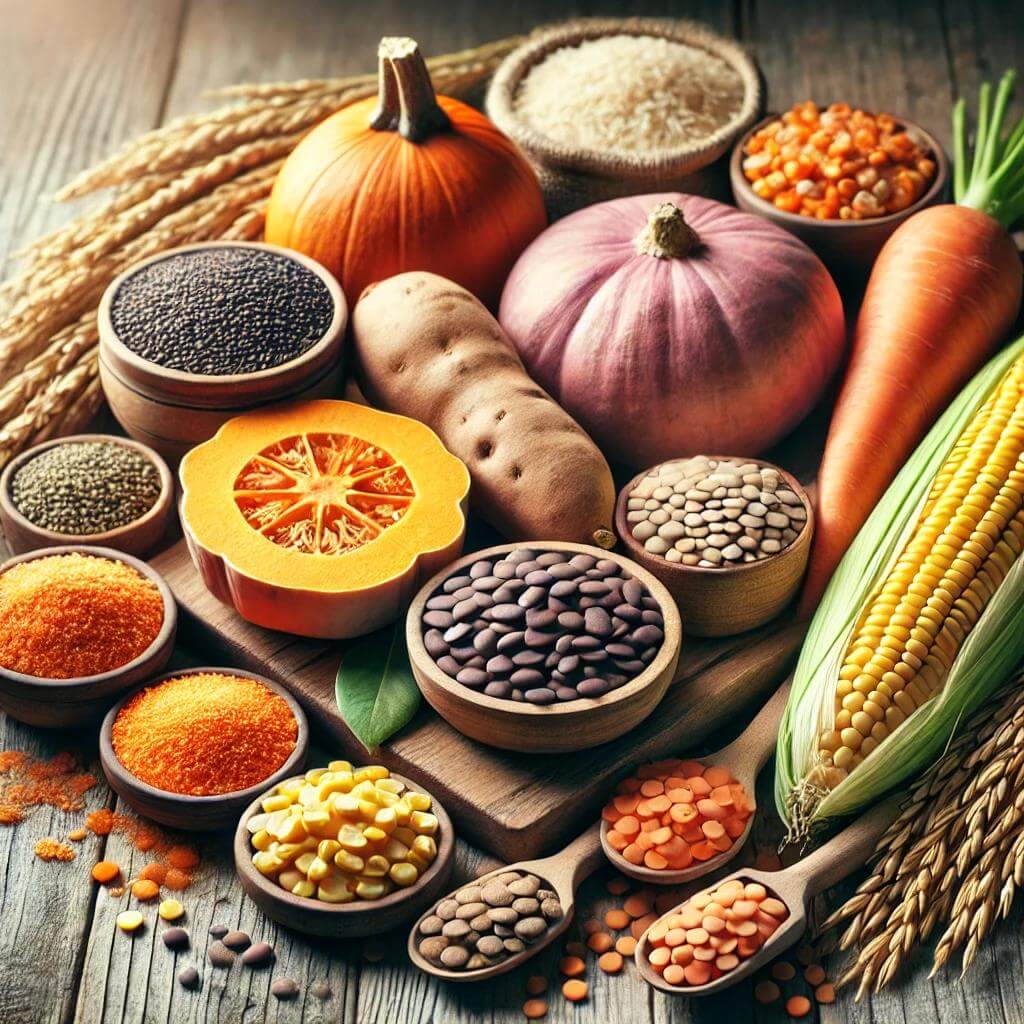Top 20 High-Protein Foods for a Balanced Diet
Introduction
Protein is a fundamental macronutrient, essential for muscle growth, tissue repair, and overall bodily functions. Whether you’re an athlete, a fitness enthusiast, or just someone looking to maintain a healthy diet, incorporating high-protein foods is key to achieving your nutritional goals. This article explores the top 20 protein-rich foods, including both plant and animal sources, ranked by their protein content per 100 grams. From meats to seeds, these foods will help you build and sustain your body’s needs.
The Best Protein Sources for a General Diet
(Sorted by Protein Content per 100g)
1. Spirulina
Spirulina is a type of blue-green algae with an exceptionally high protein content of 57 grams per 100 grams.
- Nutritional Values: Spirulina is also rich in vitamins, minerals, and antioxidants.
- Incorporation Tips: Add spirulina powder to smoothies, juices, or sprinkle it over salads for a nutritional boost.
2. Chicken Breast
Chicken breast is a lean meat commonly consumed for its high protein content, providing 31 grams of protein per 100 grams.
- Nutritional Values: Chicken breast is also low in fat and contains important nutrients like selenium and vitamin B6.
- Incorporation Tips: Grill, bake, or sauté chicken breast and add it to salads, wraps, or main dishes.
3. Turkey Breast
Turkey breast is another lean meat that offers about 30 grams of protein per 100 grams.
- Nutritional Values: Turkey is low in fat and provides B-vitamins, particularly niacin and vitamin B6.
- Incorporation Tips: Roast, grill, or add turkey breast to sandwiches and salads for a protein-rich meal.
4. Tuna
Tuna is a highly nutritious fish, offering around 30 grams of protein per 100 grams.
- Nutritional Values: Tuna is rich in omega-3 fatty acids, vitamin D, and various minerals.
- Incorporation Tips: Use tuna in salads, sandwiches, or enjoy it grilled with vegetables.
5. Lean Beef
Lean cuts of beef, such as sirloin, contain approximately 26 grams of protein per 100 grams.
- Nutritional Values: Beef is a significant source of iron, zinc, and vitamin B12, essential for energy production and immune function.
- Incorporation Tips: Grill or broil lean beef cuts and serve with a side of vegetables or whole grains.
6. Pork Loin
Pork loin is a lean meat that provides around 25 grams of protein per 100 grams.
- Nutritional Values: Pork is rich in thiamine, selenium, and vitamin B6.
- Incorporation Tips: Roast or grill pork loin and serve with your favorite sides for a protein-packed meal.
7. Salmon
Salmon is not only rich in protein but also provides omega-3 fatty acids, offering about 25 grams of protein per 100 grams.
- Nutritional Values: Salmon is an excellent source of vitamin D, selenium, and B-vitamins.
- Incorporation Tips: Grill, bake, or pan-sear salmon and pair it with a fresh salad or roasted vegetables.
8. Shrimp
Shrimp is a low-calorie, high-protein seafood, providing around 24 grams of protein per 100 grams.
- Nutritional Values: Shrimp is also a good source of selenium, iodine, and B-vitamins.
- Incorporation Tips: Grill or sauté shrimp and add it to salads, pastas, or stir-fries.
9. Almonds
Almonds are a plant-based source of protein, offering approximately 21 grams of protein per 100 grams.
- Nutritional Values: Almonds are rich in healthy fats, fiber, vitamin E, and magnesium.
- Incorporation Tips: Enjoy almonds as a snack, add almond butter to smoothies, or sprinkle them over salads.
10. Sunflower Seeds
Sunflower seeds offer around 21 grams of protein per 100 grams.
- Nutritional Values: These seeds are rich in healthy fats, fiber, magnesium, and vitamin E.
- Incorporation Tips: Sprinkle sunflower seeds on salads, mix them into granola, or eat them as a snack.
11. Pumpkin Seeds
Pumpkin seeds are a nutritious snack, providing about 19 grams of protein per 100 grams.
- Nutritional Values: Pumpkin seeds are also rich in magnesium, iron, zinc, and antioxidants.
- Incorporation Tips: Enjoy them as a snack, sprinkle them over salads, or add them to baked goods.
12. Tempeh
Tempeh is a fermented soy product that provides around 19 grams of protein per 100 grams.
- Nutritional Values: Tempeh offers probiotics, calcium, and iron, and is less processed than tofu.
- Incorporation Tips: Tempeh can be sliced, marinated, and grilled, or added to stir-fries and salads.
13. Eggs
Eggs are one of the most versatile and complete protein sources, with around 13 grams of protein per 100 grams (approximately two large eggs).
- Nutritional Values: Eggs are also high in vitamins A, D, and B12, as well as choline, which is important for brain health.
- Incorporation Tips: Enjoy eggs scrambled, boiled, or poached as part of a balanced breakfast or add them to salads and sandwiches.
14. Oats
Oats are a versatile grain that provides about 13 grams of protein per 100 grams.
- Nutritional Values: Oats are rich in fiber, particularly beta-glucan, which is beneficial for heart health. They also contain iron, magnesium, and zinc.
- Incorporation Tips: Enjoy oats as oatmeal, use them in baking, or blend them into smoothies.
15. Cottage Cheese
Cottage cheese is a dairy product that offers about 11 grams of protein per 100 grams.
- Nutritional Values: Cottage cheese is also rich in calcium, phosphorus, and B-vitamins.
- Incorporation Tips: Enjoy cottage cheese with fruit, or use it as a base for dips and spreads.
16. Greek Yogurt
Greek yogurt is a dairy product that offers about 10 grams of protein per 100 grams.
- Nutritional Values: In addition to protein, Greek yogurt is rich in calcium, probiotics, and B-vitamins.
- Incorporation Tips: Enjoy Greek yogurt with fruit, nuts, or granola, or use it as a base for smoothies and dips.
17. Lentils
Lentils provide around 9 grams of protein per 100 grams.
- Nutritional Values: Lentils are also high in fiber, iron, and folate.
- Incorporation Tips: Use lentils in soups, stews, salads, or as a meat substitute in various dishes.
18. Quinoa
Quinoa is often referred to as a complete protein, offering about 4 grams of protein per 100 grams.
- Nutritional Values: Quinoa is also high in magnesium, iron, fiber, and manganese.
- Incorporation Tips: Use quinoa as a base for salads, in place of rice, or as a breakfast porridge.
19. Chia Seeds
Chia seeds provide about 4 grams of protein per 100 grams.
- Nutritional Values: Chia seeds are packed with fiber, omega-3 fatty acids, and various micronutrients.
- Incorporation Tips: Use chia seeds in puddings, smoothies, or sprinkle them over cereal and yogurt.
20. Broccoli
Broccoli offers about 3 grams of protein per 100 grams.
- Nutritional Values: Broccoli is rich in fiber, vitamin C, vitamin K, and various antioxidants.
- Incorporation Tips: Steam, stir-fry, or roast broccoli, or add it to salads and casseroles.
Summary Table (Sorted by Protein per 100g)
| Food | Protein (g per 100g) | Protein (g per serving) | Serving Size | Other Nutrients |
|---|---|---|---|---|
| Spirulina | 57 | 4 | 7g | Vitamins, Minerals, Antioxidants |
| Chicken Breast | 31 | 31 | 100g | Selenium, Vitamin B6 |
| Turkey Breast | 30 | 30 | 100g | B-Vitamins, Low fat |
| Tuna | 30 | 30 | 100g | Omega-3, Vitamin D, Minerals |
| Lean Beef | 26 | 26 | 100g | Iron, Zinc, Vitamin B12 |
| Salmon | 25 | 25 | 100g | Omega-3, Vitamin D, Selenium |
| Pork Loin | 25 | 25 | 100g | Thiamine, Selenium, Vitamin B6 |
| Shrimp | 24 | 24 | 100g | Selenium, Iodine, B-Vitamins |
| Almonds | 21 | 6 | 28g | Healthy fats, Fiber, Vitamin E |
| Sunflower Seeds | 21 | 6 | 28g | Healthy fats, Fiber, Magnesium, Vitamin E |
| Pumpkin Seeds | 19 | 9 | 47g | Magnesium, Iron, Zinc, Antioxidants |
| Tempeh | 19 | 19 | 100g | Probiotics, Calcium, Iron |
| Eggs | 13 | 13 | 100g | Vitamins A, D, B12, Choline |
| Oats | 13 | 6 | 46g | Fiber, Iron, Magnesium |
| Cottage Cheese | 11 | 11 | 100g | Calcium, Phosphorus, B-Vitamins |
| Greek Yogurt | 10 | 10 | 100g | Calcium, Probiotics, B-Vitamins |
| Lentils | 9 | 18 | 198g | Fiber, Iron, Folate |
| Quinoa | 4 | 8 | 185g | Magnesium, Iron, Fiber, Manganese |
| Chia Seeds | 4 | 4 | 28g | Fiber, Omega-3, Micronutrients |
| Broccoli | 3 | 3 | 100g | Fiber, Vitamin C, Vitamin K, Antioxidants |
Conclusion
Incorporating a variety of high-protein foods into your diet is essential for maintaining muscle mass, supporting bodily functions, and promoting overall health. Whether you prefer plant-based options like spirulina, tempeh, and lentils, or animal-based sources such as chicken, tuna, and eggs, the key is to diversify your protein intake to ensure you’re getting all the essential amino acids and nutrients your body needs. This list provides a well-rounded selection of the best protein sources available, making it easier for you to achieve your dietary goals.
*Disclaimer: The information provided in this article is for educational and informational purposes only and should not be construed as health advice. The content is solely the personal opinion of the author and is not intended to be a substitute for professional medical advice, diagnosis, or treatment. Always seek the advice of your physician or other qualified health provider with any questions you may have regarding a medical condition or before starting any new diet or treatment. Read more




6 comments